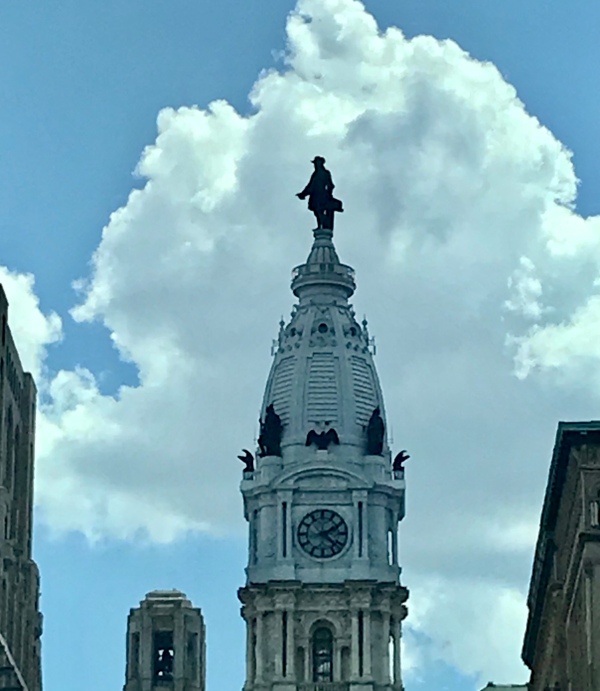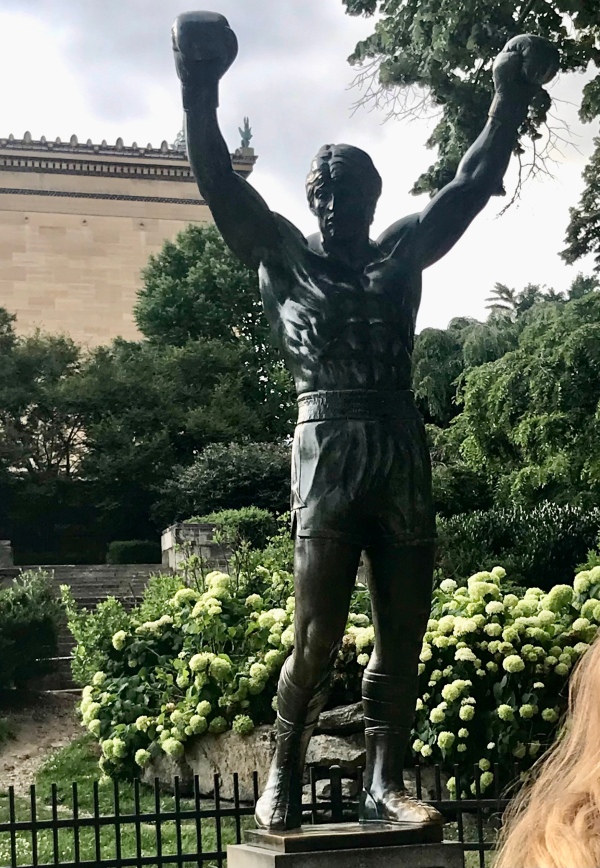Compensation for late service? (Photo of a famous painting) By: Donald L Swanson Debtor’s Chapter 11 counsel cannot be compensated for services performed after a trustee is appointed and the debtor removed from possession. That’s the rule of law in the Fifth Circuit and in a not-for-publication decision of the Ninth Circuit’s Bankruptcy Appellate Panel, based... Continue Reading →
A Dilemma In Mass Tort Bankruptcies: Maximizing Value v. Wreaking Vengeance (In re Bestwall)
A dilemma? (photo by Marilyn Swanson) By: Donald L Swanson Bankruptcies with large tort claims are common: some involve a limited number of claimants (e.g., a drunk driver hits a bus or a restaurant serves bad food one evening); and others have large numbers of claimants, some of whom won’t even be known for at least... Continue Reading →
Does Refusing To Correct An Inaccurate Credit Report Violate The Discharge Injunction? (Bruce v. Citigroup)
An accurate statement (photo by Marilyn Swanson) By: Donald L Swanson The opinion is Bruce v. Citigroup Inc., Case No. 22-1000, decided August 2, 2023, by the U.S. Second Circuit Court of Appeals. The opinion addresses this question: Did Citigroup violate Debtor’s discharge injunction by refusing to correct an inaccurate credit report? The Second Circuit answers... Continue Reading →
Subchapter V Trustee Powers After Debtor’s Removal: Conventional Model v. Impotent Trustee (In re Coeptis Equity)
Unconventional and impotent (photo by Marilyn Swanson) By: Donald L Swanson When a Subchapter V debtor is removed from possession under § 1185(a), what can the Subchapter V trustee do with debtor’s assets and operations? Duties, Rights, Powers and Functions Under § 1184, certain duties of a trustee are delegated to the Subchapter V debtor, “including... Continue Reading →
“Bankruptcy Is Bad” = A Faulty Assumption For Mass Tort Cases (3M Combat Arms Earplugs Settlement)
A bad development (photo by Marilyn Swanson) By: Donald L Swanson The existence of a bankruptcy option is a good thing for any debtor-creditor situation that is highly stressed—whether the bankruptcy option is used or not. This is especially true in mass-tort cases where a potential exists for (i) hugely-disparate results for similarly situated plaintiffs, and... Continue Reading →
A Rough Day At U.S. Supreme Court, During Oral Arguments, For Debtor’s Counsel (Truck Insurance v. Kaiser Gypsum)
A rough day (photo by Marilyn Swanson) By: Donald L Swanson A mass-tort asbestos case before the U.S. Supreme Court is Truck Insurance Exchange v. Kaiser Gypsum Company, Inc., Case No 22-1079. Here is a link to the transcript of oral arguments in that case, from March 19, 2024. In Truck Insurance, the question is whether... Continue Reading →
Bankruptcy Abuse Rarely Works . . . Because Of Gatekeepers—APPELLATE COURTS (Part 5)
An appellate gatekeeper? (Photo by Marilyn Swanson) By: Donald L Swanson Over the years, I’ve heard lots of people say, “Bankruptcy abuse is a huge problem,” as a self-evident and undeniable proposition. But here’s the thing. Debtors who try to abuse the bankruptcy system rarely get away with it. That’s because there are too many gatekeepers—and... Continue Reading →
Bankruptcy Abuse Rarely Works . . . Because Of Gatekeepers—BANKRUPTCY COURTS (Part 4)
Bankruptcy judge as gatekeeper? (Photo by Marilyn Swanson) By: Donald L Swanson Over the years, I’ve heard lots of people say, “Bankruptcy abuse is a huge problem,” as a self-evident and undeniable proposition. But here’s the thing. Debtors who try to abuse the bankruptcy system rarely get away with it. That’s because there are too many... Continue Reading →
Bankruptcy Abuse Rarely Works . . . Because Of Gatekeepers—U.S. TRUSTEES (Part 3)
U.S. Trustee as gatekeeper? (Photo by Marilyn Swanson) By: Donald L Swanson Over the years, I’ve heard lots of people say, “Bankruptcy abuse is a huge problem,” as a self-evident and undeniable proposition. But here’s the thing. Debtors who try to abuse the bankruptcy system rarely get away with it. That’s because there are too many... Continue Reading →
Bankruptcy Abuse Rarely Works . . . Because Of Gatekeepers—CREDITORS AND THEIR ATTORNEYS (Part 2)
Creditors as gatekeeper? (photo by Marilyn Swanson) By: Donald L Swanson Over the years, I’ve heard lots of people say, “Bankruptcy abuse is a huge problem,” as a self-evident and undeniable proposition. But here’s the thing. Debtors who try to abuse the bankruptcy system rarely get away with it. That’s because there are too many gatekeepers—and... Continue Reading →









